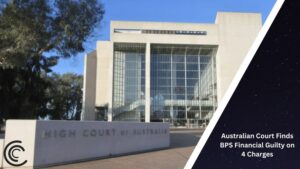Key Takeaways
- The new legislation introduces a crypto-related element within an “asset regularization scheme.”
- The scheme allows taxpayers to legalize holdings with a flat tax on assets—5% if declared by March 2024
Argentina is undergoing significant changes in its approach to cryptocurrency regulation under the new government led by Javier Milei.
In a departure from previous policies, the administration is actively working to streamline the legalization of crypto holdings, even for those with overdue tax declarations. This move is a key aspect of Milei’s broader economic reform and deregulation agenda.
The government recently signaled support for the use of Bitcoin in contractual agreements. Simultaneously, regulatory efforts have intensified, as seen in the dismantling of an undisclosed crypto mining farm near Buenos Aires.
This has sparked discussions about the country’s stance on cryptocurrencies and the need for a balanced approach that encourages adoption while addressing potential illicit activities.
Argentina’s national tax authority (AFIP) conducted a comprehensive “mega operation,” resulting in 40 arrests and the confiscation of various items associated with an allegedly illicit mining operation.
AFIP’s increased efforts to detect undeclared crypto farms through specialized units focused on high electricity consumption highlight the government’s commitment to regulation.
Within these enforcement actions, the nonprofit ONG Bitcoin Argentina clarified that crypto mining, when compliant with local laws, isn’t inherently illegal.
The government’s recent introduction of the “Law of Bases and Starting Points for the Freedom of Argentines” in Congress on December 27 is a pivotal step. Part of Milei’s reformist agenda, the bill covers various aspects, including tax, labor, criminal, energy, and electoral reforms.
Notably, it introduces a crypto-related element within an “asset regularization scheme.” This scheme allows taxpayers to legalize holdings with a flat tax on assets—5% if declared by March 2024, 10% from April to June 2024, and 15% from July to September 2024.
The bill reflects the government’s effort to establish clear guidelines for the regularization of crypto assets and taxes, fostering transparency and regulation in the country’s crypto ecosystem.
This legislative move aligns with earlier hints from Diana Mondino, the minister of foreign affairs, international trade, and worship, about the potential acceptance of cryptocurrencies under specific conditions outlined in the “Bases for the Reconstruction of the Argentine Economy” decree passed on December 20.
As Argentina navigates the delicate balance between embracing crypto innovation and mitigating associated risks, Milei’s government faces the challenge of creating a regulatory environment that encourages responsible crypto usage while addressing concerns related to illicit activities in the digital asset space.











